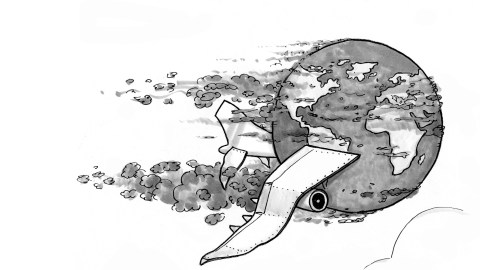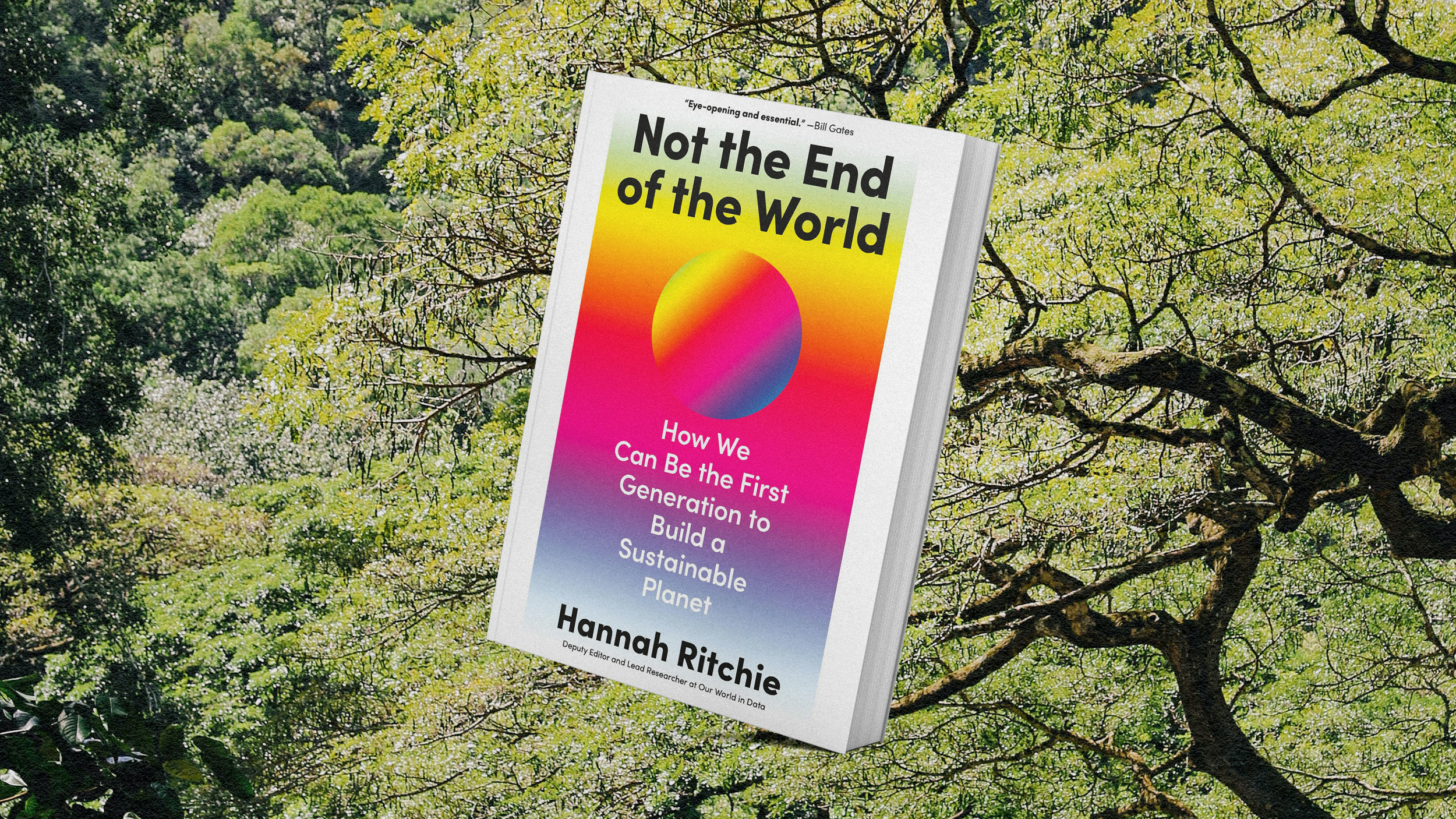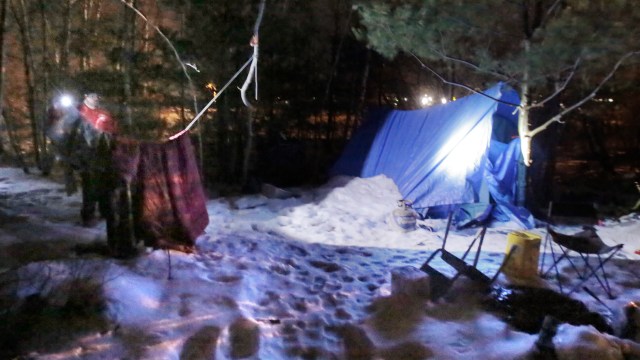Would you risk your kids’ lives on a coin-flip flight?

Illustration by Julia Suits, author of The Extraordinary Catalog of Peculiar Inventions, and The New Yorker cartoonist.
- The climate crisis concretely means facing many implicit hard-love tests.
- Who, or what, do you love (or hold sacred)? Really love. Love enough to sacrifice to protect? Or do you choose to protect your children, or your cherished way of life, only if it’s cheap and easy, and if it doesn’t interfere too much with your lifestyle?
- “The bigger your carbon footprint, the bigger your moral duty.”
If you knew a flight had a coin-flip chance that it would crash, would you put your kids on it? An analogy to flight risk grants a better grasp of what the climate crisis concretely means. And it highlights an implicit hard-love test that many of us would rather not face.
By not taking emergency action on the climate crisis, you basically “gamble your children’s future on the flip of a coin,” as Greta Thunberg says.
The “united science” (as Thunberg calls the international consensus described in IPCC reports) has focused on slightly better odds — for a 67% chance of avoiding climate-crash “Hothouse Earth” conditions we must keep total future emissions below ~360 gigatons. That’s a tiny remaining carbon budget, which at our current (still-growing and record rate) of ~42 GT per year will be gone in ~8 years (the 50:50 numbers are ~10-12 years).
All the climate numbers you’ll see mean the same thing — we must cut emissions fast. And this can only be done by large changes to the way we live. And those changes have to be fast, and starting from the top. As Thunberg says, the richer you are, and “the bigger your carbon footprint, the bigger your moral duty.”
Climate change: We need bipartisan action before it’s too late | Daniel …
Countering these doomy-gloomy facts, many optimists will say they’ve heard we’re making great progress with electric cars, and clean energy (cheaper than coal), and plant-based meat alternatives, etc.
But here’s the concrete reality — global gas-guzzling SUV growth will wipe out all electric vehicle gains (e.g., for every electric vehicle in the UK, 37 SUVs are sold). Whatever the clean-energy cheerleaders say, only ~18% of new investment goes to clean energy, and 82% is still going into dirty projects (clean = $332 billion of total $1.8 Trillion). And U.S. meat eating grew to a record 220 lbs each this year. We have a long way to go.
There are a lot of details and numbers we could quibble over, but given what scientists know about the risk of vast irreversible climate disruptions “to err on the side of danger is not a responsible option” (so wrote Professor Tim Lenton in Nature, recently).
Behind all the complexities there’s a clear truth: The basic “equation is simple: fewer emissions equal a more hospitable climate.”
That brings us to the hard love-test questions: Who, or what, do you love (or hold sacred)? Really love. Love enough to “sacrifice” to protect? To expend resources to protect?
Or do you choose to protect what you say you love only if it’s cheap and easy, and if it doesn’t interfere with your lifestyle? What is it worth to you to help your children, or your cherished way of life, to survive (and thrive)?





